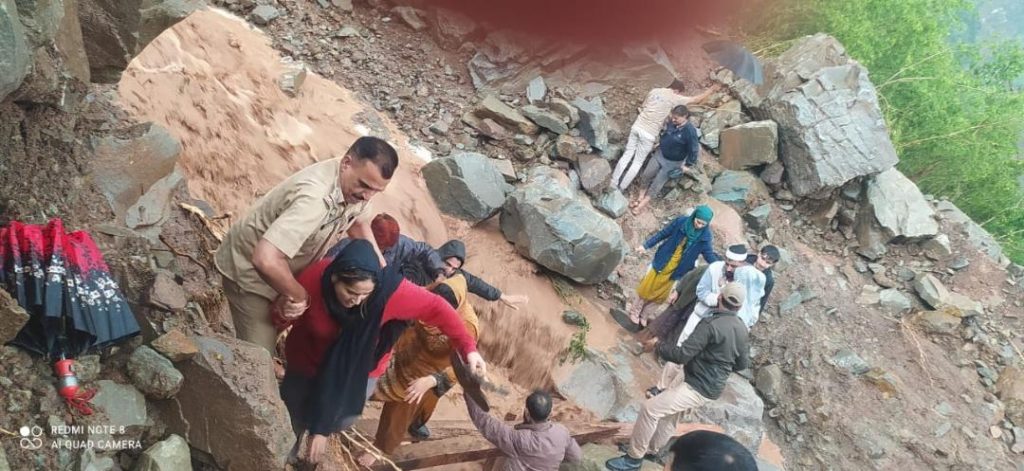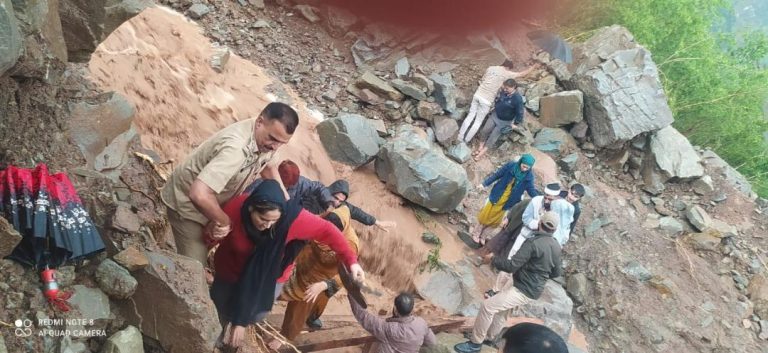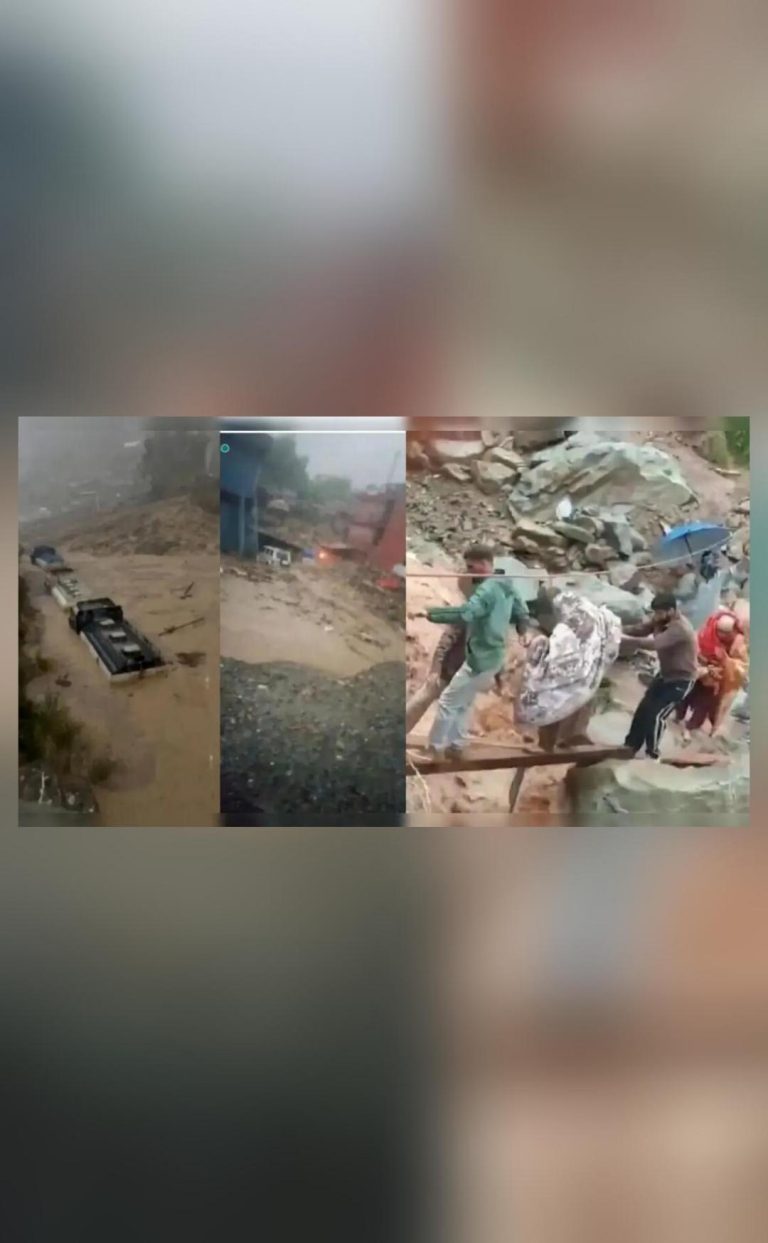
All schools, colleges to remain shut on April 21 in J&K’s Ramban
The recent flash floods caused by heavy rain in Jammu and Kashmir’s Ramban district have resulted in a significant disruption to the educational system in the area. In the wake of the devastating cloudburst near Chenab Bridge in Dharamkund, which claimed three lives and damaged several houses, all educational institutions in Ramban will remain closed on April 21.
The decision to shut down schools and colleges was taken by the district administration to ensure the safety and well-being of students and teachers. The authorities have deemed it necessary to prioritize the safety of the educational community in the face of the ongoing relief and damage assessment efforts.
The cloudburst that struck the region on April 19 brought with it heavy rain and flash floods, causing widespread damage and disruption. The incident resulted in the loss of three precious lives, and many more were left stranded. The police teams worked tirelessly to rescue nearly 100 people who were trapped in the affected areas.
The incident has left the residents of Ramban in a state of shock and anxiety. The district administration has been working around the clock to provide relief to the affected families and to assess the extent of the damage caused by the cloudburst.
In a statement, the Deputy Commissioner of Ramban district stated that the decision to close schools and colleges was taken to ensure the safety of the students and teachers. The district administration is working closely with the educational institutions to monitor the situation and to provide support to those affected.
The closure of educational institutions has also been necessitated by the fact that the roads and infrastructure in the affected areas are still precarious. The cloudburst caused significant damage to the roads and bridges, making it difficult for people to move around safely.
The district administration has also set up relief camps in the affected areas to provide shelter, food, and medical assistance to those who have been displaced. The relief camps are being managed by the administration in close coordination with local volunteers and NGOs.
The incident has also highlighted the need for the government to take adequate measures to prevent such disasters in the future. The government has been urged to take immediate action to improve the infrastructure and drainage system in the region to prevent similar incidents in the future.
As the relief and damage assessment efforts continue, the residents of Ramban are coming together to support each other in this difficult time. The community has rallied around the affected families, providing them with food, shelter, and emotional support.
The incident has also brought to the fore the importance of disaster preparedness and emergency response. The government and the administration have been urged to develop effective disaster management plans to mitigate the impact of such incidents in the future.
In conclusion, the closure of educational institutions in Ramban district is a necessary measure to ensure the safety and well-being of students and teachers. The district administration’s efforts to provide relief and support to the affected families are commendable, and the community’s response to the disaster is a testament to the resilience and solidarity of the people of Ramban.



